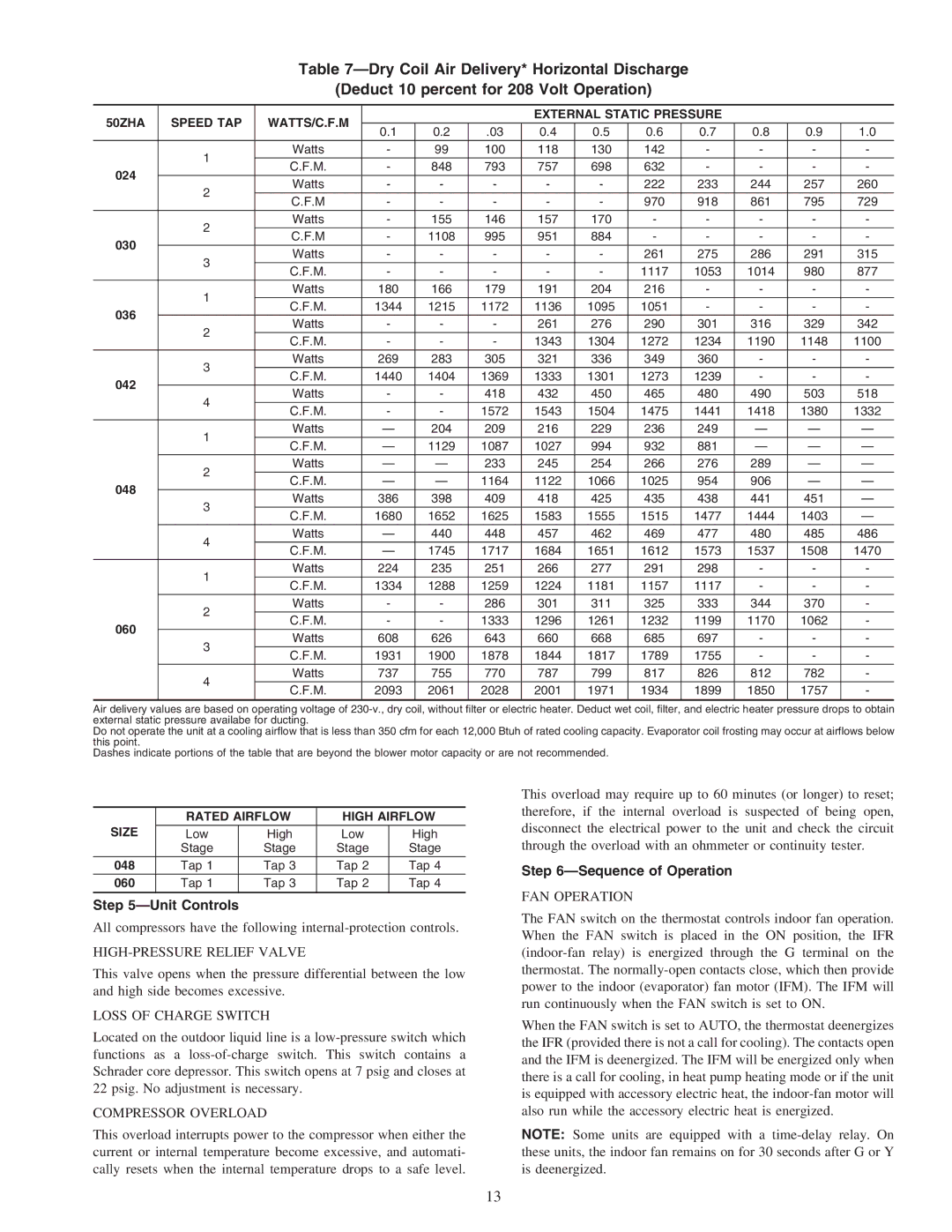50ZHA024-060 specifications
The Carrier 50ZHA024-060 is a remarkable rooftop unit designed for commercial applications, providing both cooling and heating solutions in a compact and efficient manner. Known for its reliability and advanced engineering, this model is ideal for businesses seeking to optimize indoor comfort while maintaining energy efficiency.One of the key features of the 50ZHA unit is its advanced scroll compressor technology. This innovation not only ensures quiet operation but also offers superior efficiency, reducing operational costs. The unit is designed to deliver a wide range of capacity options, from 24,000 to 60,000 BTU/h, making it versatile for various building sizes and requirements.
The 50ZHA series employs a microprocessor-based control system that enhances user convenience and operational efficiency. This smart technology enables precise temperature control, scheduling, and diagnostics. Furthermore, it offers compatibility with advanced building management systems, allowing for seamless integration into modern HVAC setups.
Energy efficiency is a hallmark of the Carrier 50ZHA024-060, which is equipped with environmentally friendly refrigerants that meet current regulatory standards. This commitment to sustainability is further emphasized by its exceptional SEER and EER ratings, indicating lower energy consumption without compromising performance.
In terms of construction, the 50ZHA series features a robust design with corrosion-resistant materials, ensuring durability even in harsh environmental conditions. The unit’s compact rooftop design simplifies installation and reduces the footprint, making it an excellent choice for urban areas where space is limited.
Moreover, the Carrier 50ZHA models are equipped with advanced filtration systems that improve indoor air quality by minimizing airborne contaminants. This is particularly beneficial for commercial spaces, where maintaining a healthy environment is crucial for employee productivity and wellbeing.
The 50ZHA024-060 also offers various customizable options, including economizers for increased fresh air intake and enhanced humidity control features. These options allow businesses to tailor their HVAC solutions to specific operational needs, ensuring optimal comfort year-round.
In summary, the Carrier 50ZHA024-060 is an exceptional rooftop unit that combines advanced technology, energy efficiency, and user-friendly controls. Its sturdy construction, along with a range of customizable features, makes it a leading choice for commercial HVAC applications, ensuring sustained performance and comfort in diverse settings.
